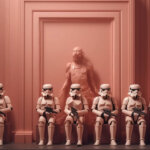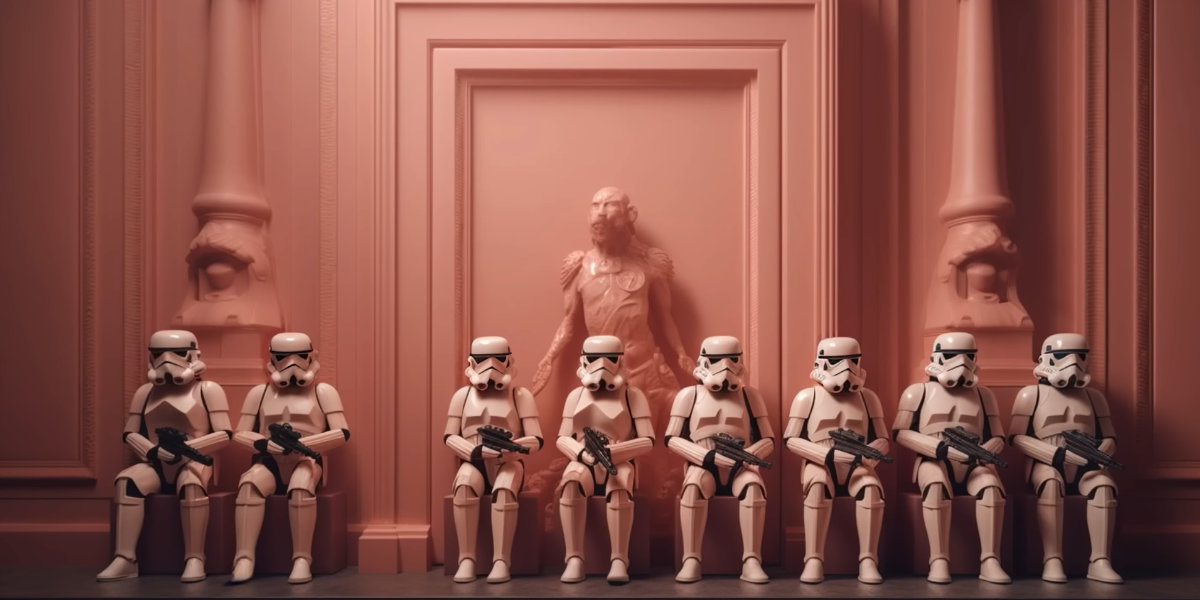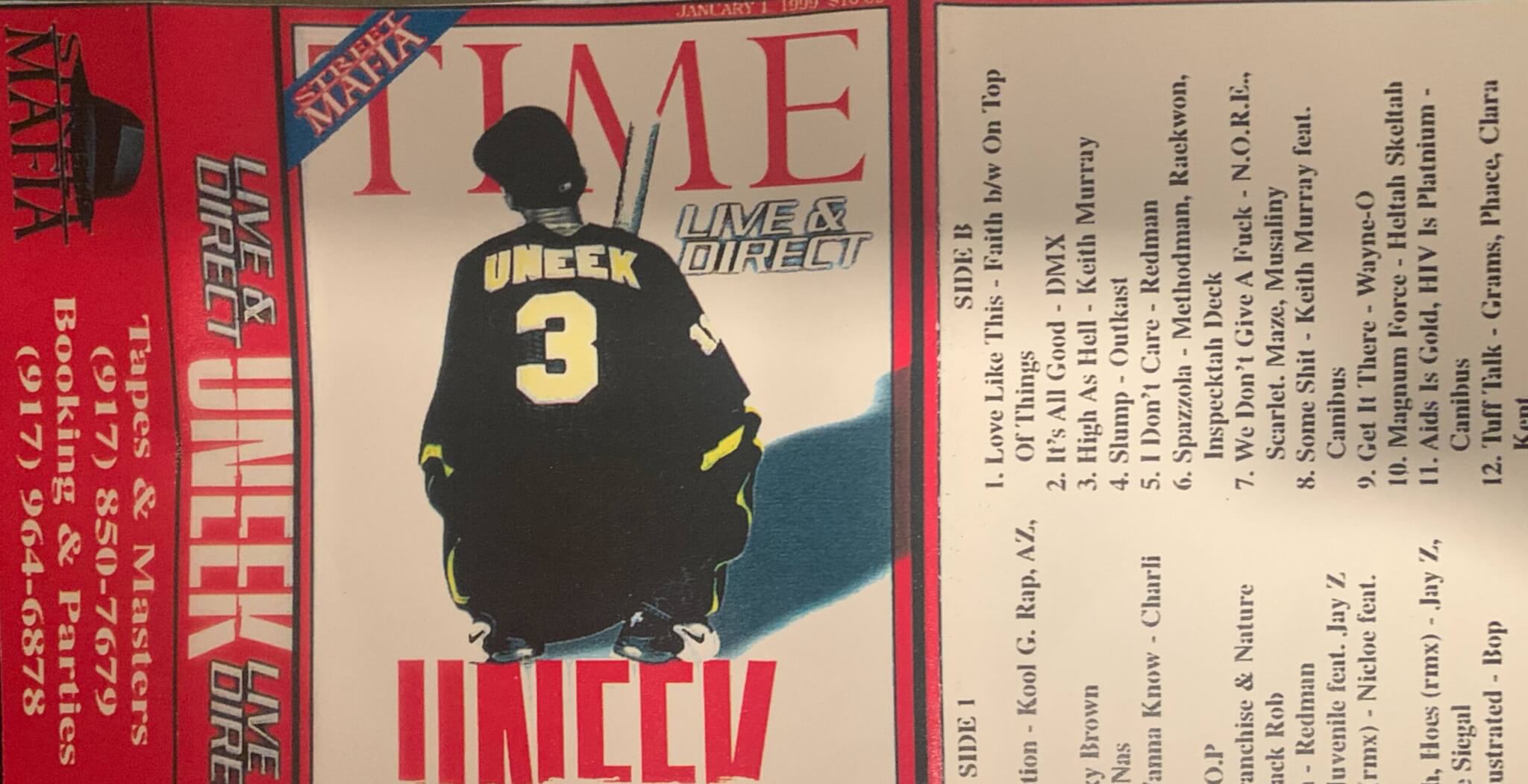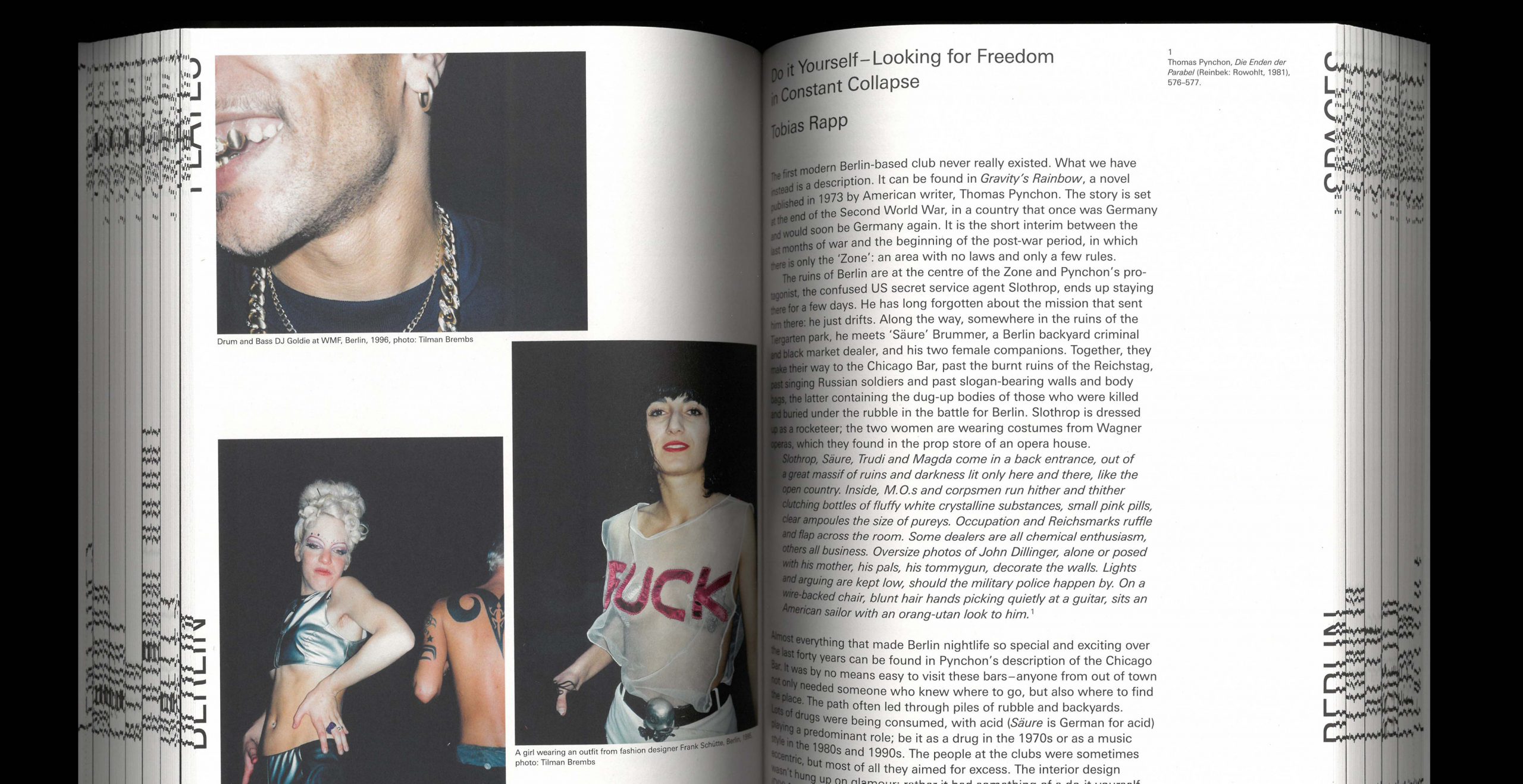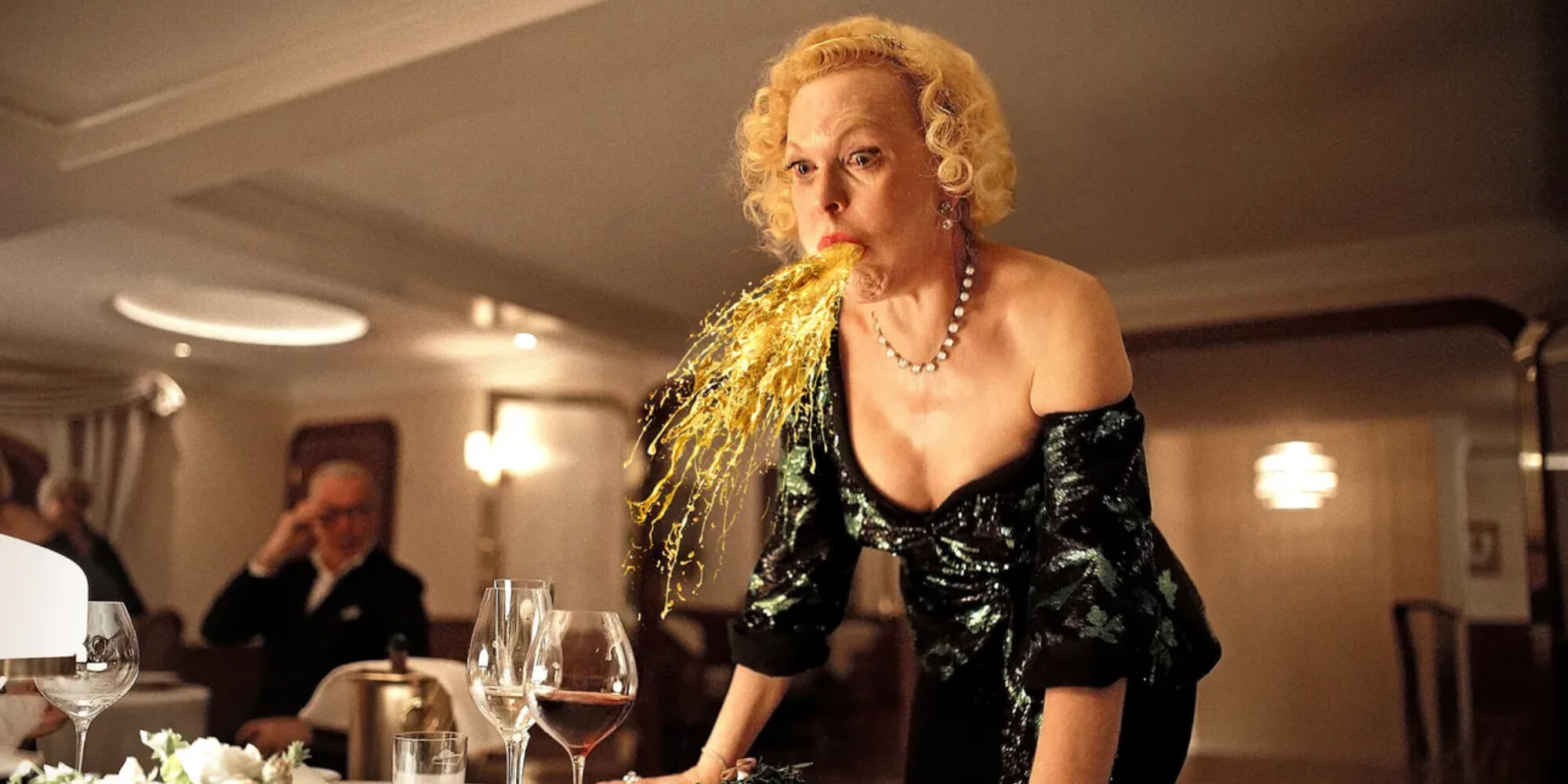Whenever people who perceive themselves as smart (always a sure sign that all results should be taken with a grain of salt) wish to demonstrate the alleged creative power of AI, chances are high that the example is made at the expense of poor Wes Anderson:
Even the Russo Brothers, directors of “Avengers: Infinity War“ and ”Avengers: Endgame“, shared a Midjourney creation of “Wes Anderson‘s Avengers“, fully crammed with the expected tropes – Owen Wilson as Star-Lord deadpanning in a symmetrical composition with pastel color schemes, Adrian Brody as Hawkeye looking more like Robin Hood, and Willem Dafoe as Loki gazing straight into the lens.
You don‘t even have to watch this AI-generated trailer to see it because you have the images right away in your mind. We all have a preconceived notion of how something directed by Wes Anderson would look like, whereas we hardly have an idea of what something might look like if, for example, Christopher Nolan were too direct, although his visual approach is also highly unique.
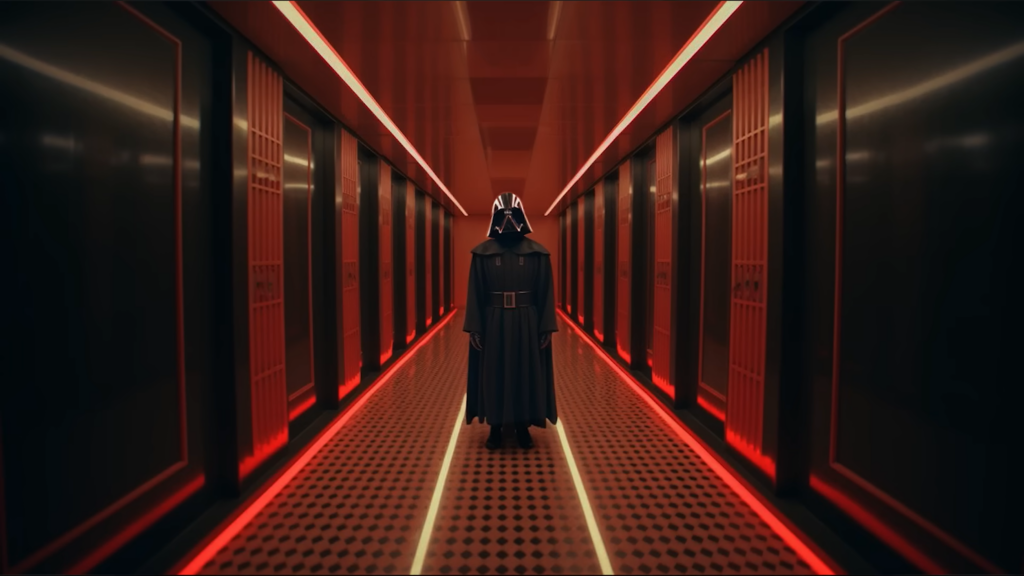
Anderson‘s distinctive style is easy to mimic and a single still image from one of his movies is enough to understand Anderson as a director. His name is well-known even among people who don‘t describe themselves in their Tinder bios as cinephiles and Anderson’s output is high and reliable enough to provide the film world with a constant supply of new material every few years.
And that‘s the biggest threat to Anderson and in the long run to any artist with a truly distinctive style and instant recognisability. The urge to use them as an increasingly annoying “proof of concept” for the apparent creativity of AI. This though proves only one concept: imitating may look easy, but is almost impossible and leads only to parodies. An AI will be able to learn what an artist does and produce a result – but it will never learn or even understand why the artist was doing it. Reducing artists to an aesthetic may be heaven for tech-bros, but it‘s hell for carefully chosen and meticulously weighed artistic decisions. This starts with movie posters and ends with full-fledged films.
Even the most enthusiastic arthouse audience can only endure Anderson every few years, but now the internet is littered with new machine creations every day and with every new ”Star Wars made by Wes Anderson“ or “Wes Anderson‘s Succession“ or “Harry Potter made by Wes Anderson“ the whole idea becomes more and more of a terrible joke. Instead, AI is just a sophisticated algorithm that excrements educated guesses.
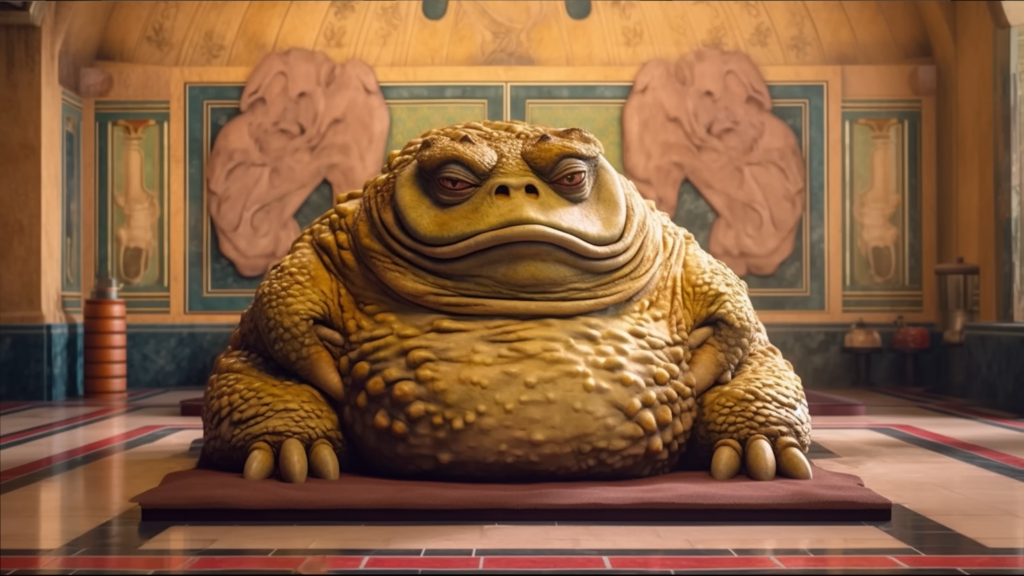
In the trailer to his upcoming movie ”Asteroid City“, Jason Schwartzman describes an alien invasion by saying: “I don’t like the way that guy looked at us, the alien, like we’re doomed,” to which Scarlett Johansson replies: “Maybe we are.”
Yes, maybe we are. Doomed to never ever be able to digest any original work of artists with a distinctive voice ever again because of the way we are supersaturated by being constantly confronted with the mimicking of a certain art style. This might be the real dystopia that AI will bring upon us: To prevent the potential audience to be overfed with a unique artistic style, one has to be as interchangeable and unrecognizable as possible. Otherwise, your style runs the risk of becoming a permanent parody penetrating people‘s perception of your original works because they will be oversaturated and do not care for the connection between an artistic style and the emotional core hidden within.
*Images from AI-generated trailers








